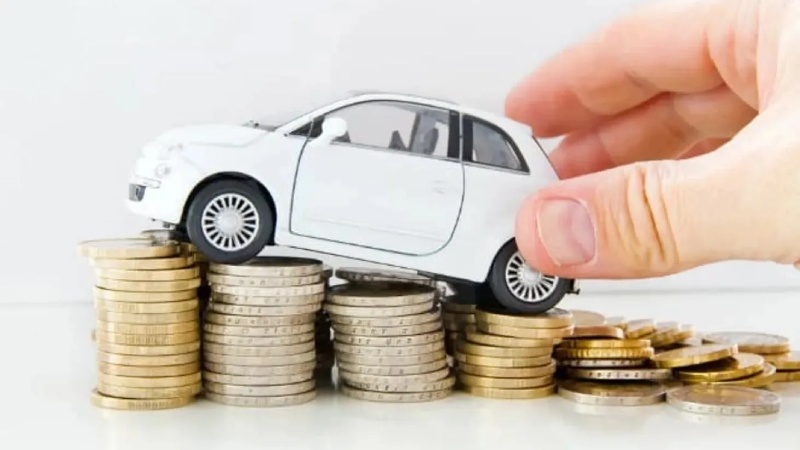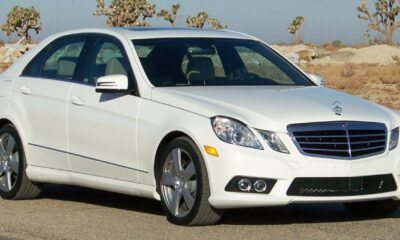Startup
What do you need to know about auto insurance? Tips for how to lower your premium

Your car is protected by auto insurance from a variety of dangers, including theft, vandalism, and accidents. Make sure you don’t overpay for coverage by having a basic understanding of auto insurance. What you should know about auto insurance and some tips for how to lower your premium.
How does auto insurance work?
A contract between you and an insurance provider known as car insurance covers bodily harm, damage to other people’s property, damage to your car and other cars, and any other property damage that results from an accident. Your state of residence and who caused the accident will affect the specific claims procedure, but in general, you will make a claim following a car accident and wait for your insurer to approve it.
Insurance companies look at your car, the amount of coverage you buy, and your driving history to calculate your auto insurance price. After receiving approval for a policy, you have the option of paying it in full right once or in manageable monthly, quarterly, or annual payments.
What is a deductible?
The portion of a covered claim that you are responsible for paying out of pocket is known as your automobile insurance deductible. Consider a scenario in which your deductible is $1,000 and your car sustains $5,000 in damage as a result of an accident. Your insurance company would pay out $4,000 in that situation.
Generally speaking, your car insurance rate will be higher with a bigger deductible and vice versa. Make sure you can afford to pay the higher deductible in the event of an accident before choosing it in order to save money over the course of the year.
What types of auto insurance do you need?
There are various types of auto insurance coverage available, and each one offers a different level of protection. Do not forget that you are required by law to carry insurance that meets the bare minimum requirements for your state. Consider the following types of auto insurance:
- Liability – If you cause a car accident and are at fault, your liability insurance will cover any property damage and any injuries you may have caused, according to the limits of your policy. Every state has its own minimum liability coverage limitations, and practically all of them demand that you have liability insurance.
- Personal injury protection (PIP): Regardless of who was at blame for the accident, PIP will pay for any medical costs incurred by you or your passengers if you are involved. If you live in a no-fault state, where you must submit a claim with your own insurance company regardless of who is at blame, you might need to buy this kind of insurance.
- Medical payments – Like PIP, medical payments insurance pays your medical bills as well as the bills of any passengers you have, regardless of who is at fault. PIP, however, is not the same as medical payment coverage. Only at-fault states offer medical payments insurance; in these states, the party adjudged to be at fault is responsible for covering insured damages. Additionally, medical payment coverage is never required, unlike PIP. If you lack health insurance, this coverage might be useful.
- Comprehensive – Comprehensive insurance covers damages to your car that are not the result of collisions with other cars or objects. Examples include vandalism, windstorms, or wildfire damage to your car. To protect its investment in the car you’re financing, your lender will probably insist that you buy this insurance.
- Collision – If your automobile collides with another car or a stationary object, such as a pole, collision insurance can help you pay for the necessary repairs or replacements. Like comprehensive insurance, a lender could insist that you get collision insurance.
- Uninsured and underinsured motorist protection – Uninsured motorist protection offers financial assistance for car damage brought on by an uninsured driver. If you are the victim of a hit-and-run accident, it might also cover repairs. If the driver who caused the damage doesn’t have adequate insurance, your underinsured motorist policy helps cover the cost of your car’s repairs. You might be obliged to buy one or both of these coverages, depending on your state’s laws.
How much auto insurance should you buy?
Your specific situation and the state you live in will determine how much coverage you require. If you want to protect your assets if someone sues you after an accident, you should purchase enough liability insurance.
The value of your car and whether you make payments on it or own it outright determine how much collision coverage you require. It’s crucial to remember that if your deductible is more than the worth of your car — say, if you drive an old car — you might not require collision insurance. However, the lender or leasing company will need you to have collision and comprehensive coverage if you lease your automobile or have an auto loan.
A decent general rule of thumb is to purchase as much coverage above the bare minimum as you can pay for. For example, collision and comprehensive coverage are not necessary if you own your automobile outright. However, including those coverages can aid in your protection in the event of an accident or other unforeseen circumstance, such as vandalism.
How to lower your auto insurance premium
Consider performing the steps that follow if you want to reduce the cost of your auto insurance:
- Compare prices to find the best deal. Shopping around is one of the best methods to reduce your auto insurance. Get quotes from at least three to five different insurance companies to discover the best pricing. You can contact an insurance agent or receive online prices for auto insurance. Compare insurance that offers comparable coverages when obtaining bids.
- Combine with a different policy or home insurance. If you purchase multiple policies from one insurance company, such as your house and auto insurance, you may be eligible for a discount. If you obtain your vehicle insurance and renters insurance from the same company, you can save money.
- Pick a larger deductible amount. You can get a better insurance deal if you select a greater deductible. But before you do, take a close look at your finances to be sure you have the money to cover the greater out-of-pocket expenses to fix or replace your damaged vehicle.
- Inquire about more reductions. Check with your insurance provider to see if any discounts are available. The military, low mileage, high grades, and using autopay are a few examples of frequent automobile insurance reductions.
- Improve your credit rating. Many insurance companies may examine your credit history when you apply for auto insurance to evaluate how dangerous you are to insure. If your credit is good, the rate will probably be lower. By developing solid credit-building habits, such as paying all of your payments on time and reducing any outstanding debt, you can raise your credit score.
-

 Sports4 weeks ago
Sports4 weeks agoAl Ahly vs Inter Miami, 2025 FIFA Club World Cup – Preview, Prediction, Predicted Lineups and How to Watch
-
Health3 weeks ago
Back to Roots: Ayurveda Offers Natural Cure for Common Hair Woes
-

 Tech3 weeks ago
Tech3 weeks agoFrom Soil to Silicon: The Rise of Agriculture AI and Drone Innovations in 2025
-

 Startup4 weeks ago
Startup4 weeks agoHow Instagram Is Driving Global Social Media Marketing Trends
-

 Sports3 weeks ago
Sports3 weeks agoFIBA 3×3 World Cup 2025: Full Schedule, Preview, and How to Watch
-

 Science4 days ago
Science4 days agoJuly Full Moon 2025: Everything You Should Need to Know, When and Where to See Buck Moon
-

 Gadget3 weeks ago
Gadget3 weeks agoThings to Know about Samsung Galaxy S26: What’s New and What’s Next
-

 Sports4 weeks ago
Sports4 weeks agoWorld Judo Championships 2025: Full Schedule, Date, Time, Key Athletes and How to Watch

























